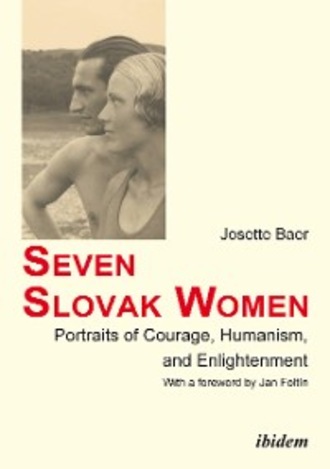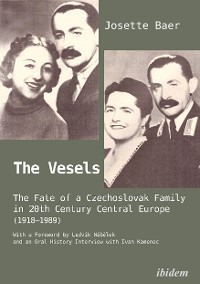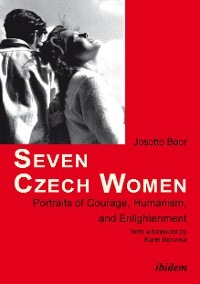
Полная версия
Seven Slovak Women.
I find it hard to understand such an attitude, but Simone had the decency to admit to her mistakes later. Pained by a bad conscience, she would translate Jo's memoirs into French in co-operation with the historian Eric Vigne, displaying gracious honesty:
"In 1957, in my hotel room in Prague, I committed a sin out of ignorance. When I received a phone call announcing my cousin, I told myself: 'Oh là là, what a drag. The family on my back while touring, what a drag!' I did not know that I had a cousin there and completely ignored that phone call, which actually was a cry for help, an SOS ... Montand and I were on the fourth stop of this tour in 1957. In the USSR, Poland and East Germany, we had seen quite a few questionable things, but we were absolutely certain that three and a half years after Stalin's death there were no more prisoners … It is crazy that we lived eight days in the city of Prague and ignored this. I was guilty a second time in London in 1967. She wanted to talk to me, I did not let her. I had other worries."[15]
In 1970, Signoret and her husband Yves Montand (1921–1991) would star as Lise and Artur London in the movie L'aveu (The Confession), which was based on London's memoirs. The movie shows how the Czechoslovak authorities, instructed by Soviet NKVD officers, prepared the victims for the show trials by depriving them of sleep, subjecting them to beatings and long and exhausting discussions about the principles of Marxism-Leninism and the duties of a party member.[16]
This study does not deal with emigrants; that is the reason why I did not dedicate a chapter to Jo Langer in spite of the fact that her testimony is an excellent illustration of daily life under early Communism. I focus instead on how seven women committed themselves to enlightenment, education, critical thinking, knowledge, medicine, military resistance, human rights, the arts and politics in their native Slovakia. Each woman can be seen as a symbol of her times representing the spirit and reality of the historical era in which she lives and acts. They share the ethical values of liberty, equality and fraternity: liberty as political freedom from any rule that is not legitimate in terms of the popular vote; equality before the law, predicated on upholding the rule-of-law state; and the idea that caring for others in the sense of res publica, that which is common to all, is the social glue that keeps state, nation and government together.
My selection is not representative – and I don't claim that it is. Furthermore, it is far from my intention to belittle or ignore the efforts millions of Slovak women made in the Kingdom of Hungary, during the two world wars and under Communism to bring up their families. On top of scarce resources, they had to deal with an immense bureaucracy and a patronizing state apparatus that treated the citizens as children, depriving them of minimal civil rights. It is also far from my intention to make a moral judgement about those who emigrated; nobody who has not experienced daily life in a non-democratic regime has the right to condemn those who flee in the hope of finding a better life for themselves and their families. My focus is on the seven women, all of whom can teach us a lot about courage and commitment; they voice, through their activities, what millions of unknown Slovak women were and are concerned with, sharing with them the often brutal experience of Slovak and Czechoslovak politics.
Before I present the portraits, a brief note: I plan a second volume on seven Czech women, applying the same criteria of selection and method. I shall present women of different historical epochs to reflect the different political history of the Czech lands. To avoid unnecessary repetition, the periods of Slovak history cho



